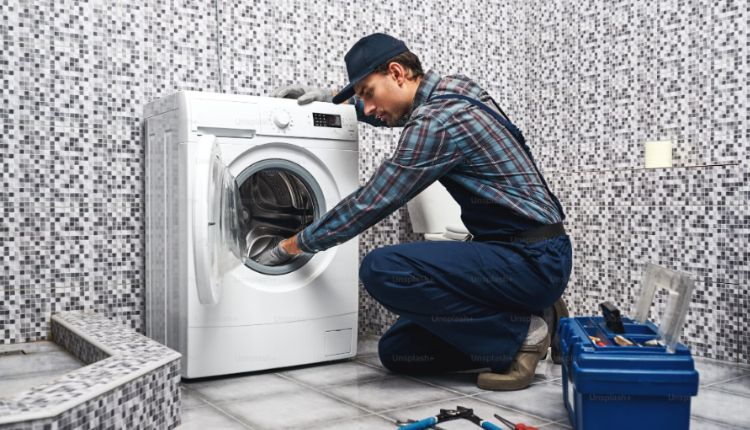A washing machine is one of those household appliances that few people can do without—certainly not until it stops functioning. Whether it hums but does not turn on, spills water all over the floor, or produces disturbing noises, a faulty washer can disrupt daily routines and cause significant stress. Noticing these early warning signs is crucial, as it can save you from expensive repairs or, in the worst-case scenario, having to replace the entire unit. If you’re facing any of these issues, washing machine repair in South Florida can help you address the problem quickly before it escalates. In this article, we’ll cover common signs your washer is on the fritz and explain when it is time to call in the professionals from Spark Service PRO to restore your laundry routine. Prompt attention can help you avoid more costly damage down the line.
The Mysterious Noises: When Your Washer Sounds Like a Rock Concert
Your washing machine should be going about its business quietly and not making a ruckus. Loud banging, grinding, or squealing means it’s time to listen.
Common Causes of Strange Noises:
- Heavy items or overloading one side of the drum typically do this.
- Worn Bearings: If the bearings wear out, they produce a deep noise because they help bear the drum movement.
- Foreign Objects: Coins, hairpins, and buttons can find their way into the drum, causing it to rattle around.
What You Can Do:
- Stop the cycle and redistribute the laundry evenly.
- Check the drum for foreign objects.
- If the noise persists, call a professional—continuing to use a washer with faulty bearings can damage other components.
Water, Water Everywhere: Leaks and Puddles
Finding a pool of water near your washer is a clear sign of trouble. Prolonged leaks can cause mold growth and damage to the floor, and they are a safety hazard.
Common Causes of Leaks:
- Damaged Hoses: Cracks or loose connections in the water supply hoses can lead to slow leaks.
- Faulty Door Seal: A worn or torn gasket around the door (especially in front-loading machines) can allow water to seep out.
- Clogged Drain Pump: Water can overflow if it isn’t draining correctly.
How to Fix It:
- Inspect hoses for cracks and tighten any loose connections.
- Examine the door seal for damage and clean any built-up residue.
- Clear out the drain pump filter.
- If leaks continue, seek professional washing machine repair services like those offered by Spark Service PRO.
Refusing to Start: A Washer That Don’t Cooperate
There are many reasons your washing machine might not turn on. For one, there might be a power supply issue—a tripped circuit breaker or faulty power outlet. Another possibility is that the lid switch commonly found in top-load washers is broken, preventing the machine from operating if the lid is not fully closed. If there is power to the washing machine, but it does not work, then the control board can be assumed to have malfunctioned.
First, check the cord and circuit breaker, then ensure the lid or door is closed correctly. Also, try unplugging the washer for a few minutes and restarting it. If nothing works, call in a professional repair service.
Spin Cycle Problems: Clothes Coming Out Soaking Wet
A proper spin cycle removes excess water from clothes, making drying easier. If your washer isn’t spinning correctly, your laundry may be sopping wet.
Common Causes:
- Faulty Drive Belt: If the belt is worn or broken, the drum won’t spin.
- Lid Switch Malfunction: The washer may fail to spin if it doesn’t detect that the lid is closed.
- Motor Issues: If the motor is faulty, the washer may not have enough power to spin correctly.
How to Handle It:
- Check for any error codes on digital models.
- Ensure the lid is securely closed.
- If you hear the motor running, the belt may need replacing, but the drum isn’t spinning.
- If problems persist, schedule a repair with Spark Service PRO to avoid further damage.
The Unwanted Smell: A Musty, Moldy Washer
If your laundry indeed smells musty, then there must be bacteria and possibly even mold growing inside your washing machine. This most often happens because some or all of the causes of the cycle are kept closed between washes: trapped moisture, the detergent residue that has built up and become a breeding ground for bacteria, and a drain pump that is clogged and can’t push standing water out, which smells awful. In order to eliminate the smell, you need to leave the washer open after each wash so that it can dry up, run a hot water cycle with vinegar and baking soda once in around thirty days’ time, and keep on cleaning the detergent dispenser as well as the filter.
Overly Long Wash Cycles: When Your Washer Takes Forever
A typical wash cycle should last between 30 and 60 minutes. If your washer seems to be running for hours, something is wrong.
Potential Causes:
- Faulty Timer: The timer controls cycle durations. If broken, cycles may not advance properly.
- Clogged Water Inlet Valve: A blockage can reduce water flow, making cycles longer.
- Drainage Issues: If water isn’t draining efficiently, cycles may take extra time.
Fixes:
- Check for error codes.
- Inspect the water inlet valve for blockages.
- If the issue continues, consult a professional washing machine repair service in South Florida.
Conclusion
A washing machine is not forever, but the earlier issues are caught, the longer it will last you, and the more you spare yourself the pain of expensive replacements. Unusual sounds, leaks, or a failure to complete a cycle all convey this need to see what the matter is. Quick DIY checks can quickly repair some minor issues; for big problems incurred, professional help is the best way out. If your washer is bothering you, take action now. Most importantly, a good washing machine keeps your clothes clean. It also saves you time, money, and stress. When you want the right people to help you, Spark Service PRO is just a call away.






